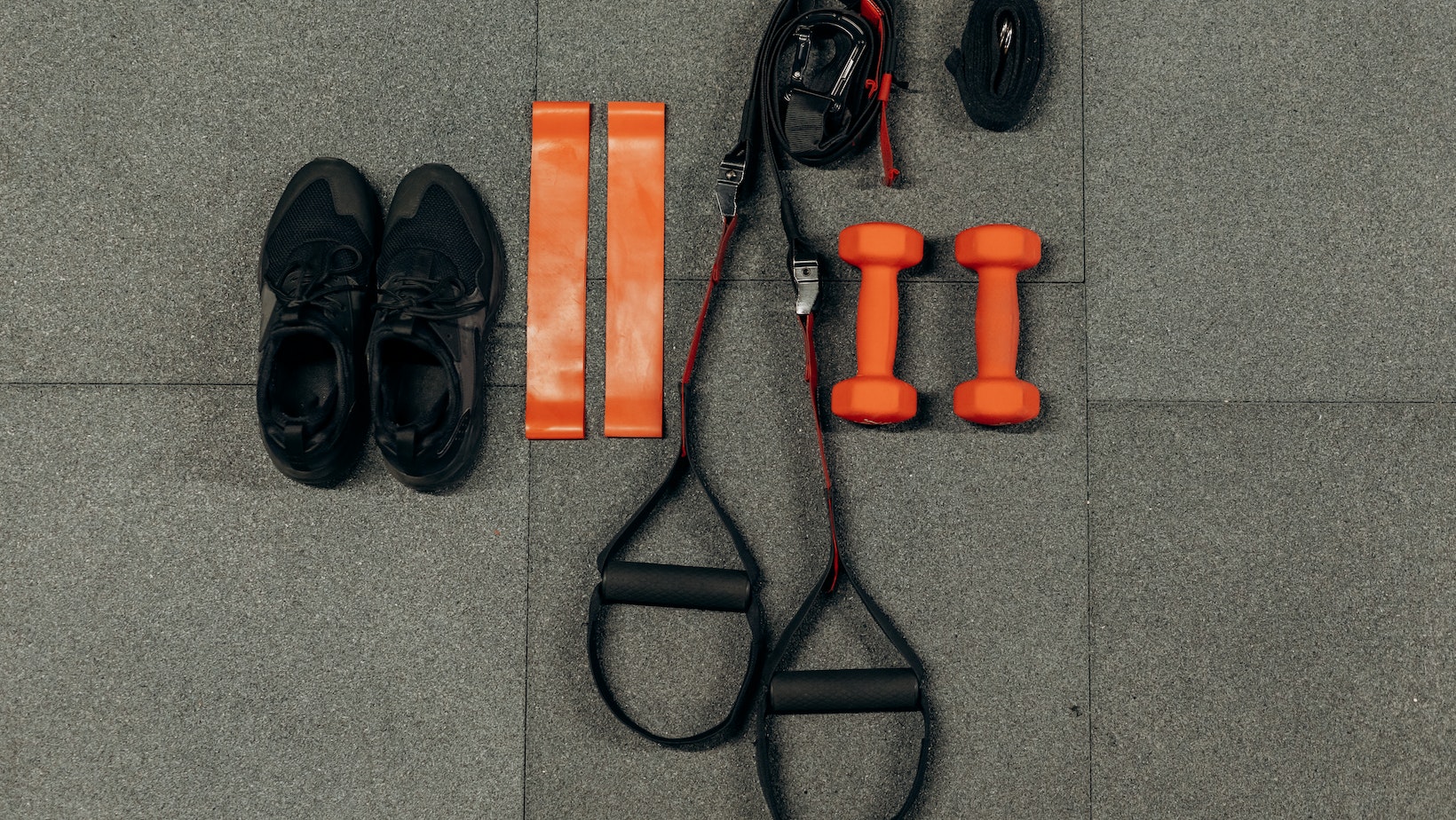
Dumbbell vs Barbell Bench Press
When it comes to comparing dumbbell vs barbell bench press, there are several factors to take into consideration that will impact your workout experience and overall fitness goals. Barbell bench press is a classic exercise that targets multiple muscles in the chest, shoulders, and triceps. It usually involves lifting a heavy barbell while lying on a flat or inclined bench.
On the other hand, dumbbell bench press involves lifting two separate weights, one in each hand, while lying on a bench. It targets the same muscle groups as barbell bench press but requires more stability and control.
The choice between dumbbell vs barbell bench press ultimately comes down to personal preference and fitness goals. If you are looking to build more overall strength and increase mass, barbell bench press might be the way to go. If you are more focused on toning and improving stability, dumbbell bench press can provide a fun and easy way to exercise.
Ultimately, incorporating both exercises into your workout routine can help you achieve a well-rounded fitness regimen.
Benefits of Using Dumbbells for Exercise
Dumbbells are one of the most versatile and effective tools for a wide variety of exercises and workouts. They are often much easier to use than barbells, making them a great choice for beginners and experienced weightlifters alike. Additionally, dumbbells can be used for many different types of exercises including chest presses, bicep curls, tricep extensions, rows, and much more.
Let’s take a look at the benefits of using dumbbells for exercise.

Increased Range of Motion
Using dumbbells for exercises is a fun and easy way to increase your range of motion and reap overall body benefits. Unlike barbells, dumbbells allow a greater range of motion as the body works harder to stabilize the muscles during the workout.
This workout with dumbbells offers a wide array of benefits that include:
|
Benefit |
Description |
|
Better muscle activation |
Dumbbell exercises work more muscles and muscles work harder to control the dumbbells. |
|
Fewer injuries |
Dumbbell exercises require less weight than barbell exercises, reducing the likelihood of injury during a workout. |
|
Improved stability |
Dumbbell exercises improve your body’s stabilizing muscles and can prevent weaknesses that come with using weight machines. |
So, if you’re looking for a versatile, easy-to-use tool that can help you achieve your fitness goals, dumbbells are a great option!
Greater Activation of Stabilizing Muscles
Using dumbbells for exercises such as bench press or shoulder press activates the stabilizing muscles, which leads to a greater overall engagement of muscles and increased strength gains.
Unlike barbell exercises, dumbbell lifts require the use of more stabilizing muscles to balance the uneven weight distribution. This increased demand on the smaller muscles helps to fully activate the targeted muscle group and can prevent muscle imbalances that can occur with barbell exercises.
Additionally, dumbbells provide a more versatile range of motion than barbells since you can move each weight independently, targeting specific muscle fibers from different angles. This variety in movement patterns increases muscle activation and can lead to greater strength gains over time. So next time you’re trying to decide between using dumbbells or barbells, remember that the added challenge of dumbbells can lead to a greater overall improvement in strength and muscle development.
Better Isolation of Specific Target Muscles
Dumbbells allow for better isolation of specific target muscles during exercise, especially when compared to barbell exercises like barbell bench press.
Here’s how dumbbells benefit the exercise routine:
- Dumbbells offer a greater range of motion and allow the muscles to move through a greater range of motion.
- Dumbbells allow for better grip and wrist positioning, reducing the risk of injury.
- Dumbbells require more stabilization and balance, engaging more muscles and burning more calories.
When comparing dumbbell bench press to barbell bench press, it was found that dumbbell bench press activates the pecs more, while the barbell bench press works more of the triceps.
Pro Tip: To get the most out of dumbbell exercises, start with a lighter weight and focus on proper form and technique, gradually increasing the weight as your muscles become stronger.
Benefits of Using Barbell for Exercise
Barbells are a great tool for strength training exercises as they allow you to focus on all your major muscle groups. Barbells provide an increased range of motion, which allows you to target different muscles in the same exercise. Using a barbell also allows you to lift more weight than you would using dumbbells, allowing you to build more strength and muscle faster.
Let’s look into more benefits of barbells for exercise.
Ability to Lift Heavier Weights
Barbells are an excellent tool for weightlifting and strength training as they give individuals the ability to lift heavier weights compared to dumbbells. The use of barbells comes with several benefits such as:
|
|
|
While dumbbells provide an easy and convenient way to exercise, they may not be able to facilitate the same gains in strength and muscle mass as barbells. In particular, the barbell bench press is an essential exercise for building chest strength and size.
More Variety of Exercises Available
Dumbbells offer a wide variety of exercises that can be incorporated into your workout routine, making exercise fun and exciting. A significant benefit of using dumbbells for exercise is that they allow for isolation exercises that can target specific muscle groups.
As compared to the barbell bench press, the dumbbell bench press provides more freedom of movement, helping you to stabilize and balance the weight to prevent injury. Additionally, by using dumbbells, you can add variations to your workout routine, such as incline and decline chest presses, that can work different areas of your chest and improve your overall strength.
Pro tip: Be sure to select the correct weight for your fitness level, and always maintain proper form throughout your exercise routine to avoid injury.

Training for Powerlifting Competitions
Barbell exercises provide a range of benefits for powerlifters, including increased muscle mass, strength, and endurance. Here are some benefits of using barbells for exercise over dumbbells:
|
1. Unilateral loading: |
While dumbbells offer unilateral loading, barbells offer both bilateral and unilateral loading. They allow you to lift heavier weights, work on your form and increase stability. |
|
2. Compound workouts: |
Barbell workouts are ideal for performing compound exercises like bench press, squat, overhead press, deadlift, and rowing. These workouts engage multiple muscle groups at once, helping you build overall strength and muscle mass. |
|
3. Range of motion: |
Barbell exercises offer a greater range of motion than dumbbell exercises. This means that you can achieve a deeper stretch, which leads to muscle hypertrophy and increased flexibility. |
When it comes to comparing dumbbell vs barbell bench press, they both work different muscles. While the barbell bench press targets the chest and triceps, the dumbbell bench press better targets the chest and triceps separately. Ultimately, it comes down to personal preference and the specific muscle groups you want to target.
Why Dumbbells Might be a Better Choice for You
Perhaps you’ve used barbells to do bench presses but are looking for an alternative. Look no further than dumbbells! Dumbbells can provide a great way to work out and tone your body. They’re easy to transport and you can use them to target different muscle groups.
Let’s take a closer look at why dumbbells can be a better choice for you.
Reduced Risk of Injury
When it comes to weightlifting, dumbbells are often a better choice than barbells because they provide a reduced risk of injury. This is especially true when performing exercises such as the dumbbell bench press compared to the barbell bench press.
Here are a few reasons why:
- Dumbbells allow for a greater range of motion, which reduces the strain on your joints.
- Dumbbells require greater stabilization from your muscles, which helps to prevent muscle imbalances and injury.
- Dumbbells allow for unilateral training, meaning you can work each side of your body separately, which can help to correct strength imbalances.
Barbell bench press primarily puts pressure on your shoulders and may restrict range of motion, while dumbbell bench press prevents injury by reducing pressure and allowing muscles to have greater flexibility, while providing the same benefits.
So, next time you hit the gym, consider swapping out the barbell for a set of dumbbells to reduce your risk of injury and ensure a safer, more effective workout.
More Versatile and Functional Exercises for Everyday Movements
Dumbbells are a better choice for exercises that mimic everyday movements and provide more versatility and functionality compared to barbells. While both dumbbells and barbells are common tools for muscle building, dumbbells can provide an engaging and fun way to exercise while also targeting multiple muscle groups.
Some of the most effective dumbbell exercises include:
|
1. Dumbbell squat |
2. Dumbbell lunge |
|
3. Dumbbell bench press |
4. Dumbbell deadlift |
|
5. Dumbbell overhead press |
These exercises target multiple muscles, improve balance, and provide increased range of motion than barbells. Furthermore, dumbbells allow for the flexibility to adjust weight loads more easily and accommodate any strength deficits or imbalances.
Pro Tip: Always use proper form and gradually increase the weight load to avoid injury.

Better for Targeting Specific Muscle Groups
If you’re looking to target specific muscle groups, dumbbells might be a better choice for you than barbells.
Dumbbells allow for a greater range of motion, which means you can work on specific muscle groups more effectively. For example, dumbbell bench press allows for a full range of motion of the shoulder blades, which helps to activate the chest muscles better than with barbells.
Dumbbells also allow for unilateral training, meaning you can work on each arm or leg separately. This can help to correct muscle imbalances and improve overall strength and stability.
While barbells are great for heavy lifting and building overall strength, dumbbells can provide versatility and target specific muscle groups that might be otherwise neglected.
|
Pro tip: |
|
Incorporate both dumbbells and barbells into your workout routine for optimal results. |
Why Barbells Might be a Better Choice for You
Dumbbells are often thought of as the preferred choice for beginners who are looking for an easy to use and fun way to exercise. While dumbbells have their benefits, barbells might be a better option if you’re looking to build muscle and strength or focus on specific muscle groups.
In this article, we’ll discuss the pros and cons of dumbbells versus barbells and why barbells might be the better choice for you.
Ability to Lift More Weight and Build More Overall Strength
When it comes to lifting more weight and building more overall strength, barbells might be a better choice compared to dumbbells. This is because barbells allow you to lift heavier weights, which in turn can lead to increased muscle development and strength gains. Unlike dumbbells, where you have to balance each weight independently, barbells are a single unit which provides stability during lifting, allowing you to load more weight on the bar.
A study published in the Journal of Strength and Conditioning Research found that barbell bench press consistently resulted in more strength gains than dumbbell bench press. However, dumbbells are still an effective tool for building strength, especially for beginners, and can provide a greater range of motion compared to barbells.
In conclusion, while both barbells and dumbbells have their benefits, if you are looking to lift more weight and build more overall strength, incorporating barbell exercises into your routine might be a better choice.
Better for Specific Powerlifting Exercises
Barbells have distinct advantages over dumbbells when it comes to specific powerlifting exercises, such as the bench press. Here’s why you might want to choose barbells over dumbbells for the bench press:
|
Control |
Safety |
Specificity |
|
With a barbell, you can establish a consistent grip width and maintain proper alignment throughout your bench press set. This results in better control and reduces the risk of injury. |
Barbells allow you to use heavier weights, which is essential for building strength and muscle mass. Additionally, if you fail to lift the barbell, you can quickly re-rack it onto the safety pins, minimizing the risk of injury. |
The bench press is a powerlifting exercise, and barbells are widely used in powerlifting competitions. By training with a barbell, you’re preparing yourself for competition and developing a more specific skill set. |
Pro Tip: While both barbells and dumbbells have unique advantages, consider your training goals and exercise preferences before deciding which is better for you.
Great for Using as a Stepping Stone to Olympic lifting
If you want to use weight training as a stepping stone to Olympic lifting, barbells might be a better choice for you than dumbbells, especially when it comes to bench press. Although dumbbells provide more range of motion and isolation of individual muscles, barbells allow you to lift heavier weights, which can help you build strength and power for Olympic lifting movements such as the snatch and clean and jerk.
When it comes to bench press, using barbells requires more stabilization and activation of the chest, shoulders, and triceps muscles compared to dumbbells, resulting in greater muscle hypertrophy and overall strength gains. Don’t fret if you’re intimidated by barbells; start with lighter weights and focus on proper form and technique. As you become more comfortable, gradually increase the weights for more significant gains.
Pro tip: Incorporating both barbells and dumbbells into your weight training routine can provide a well-rounded and effective workout for overall fitness and strength.

